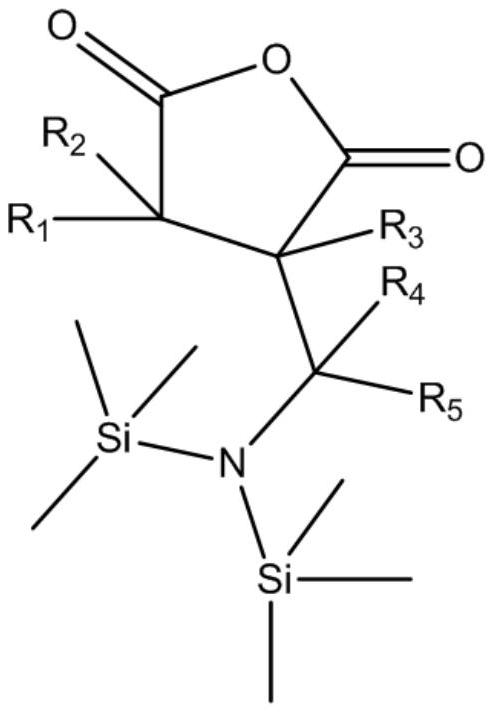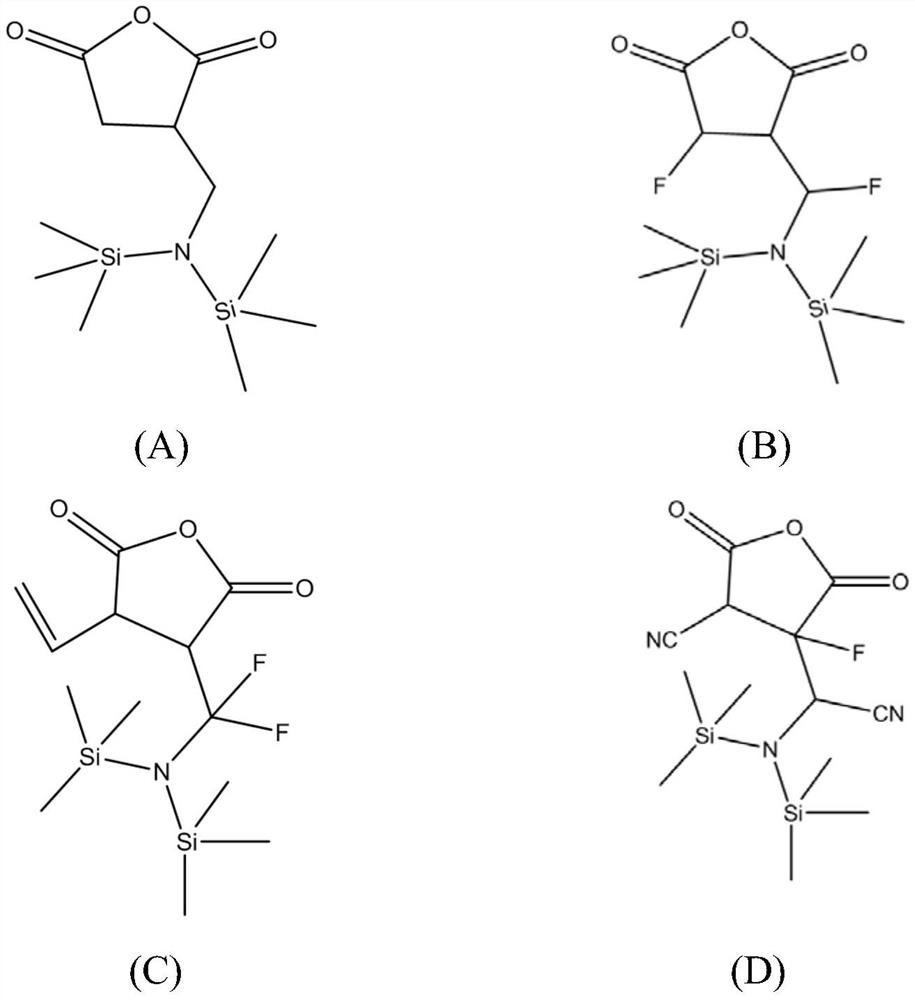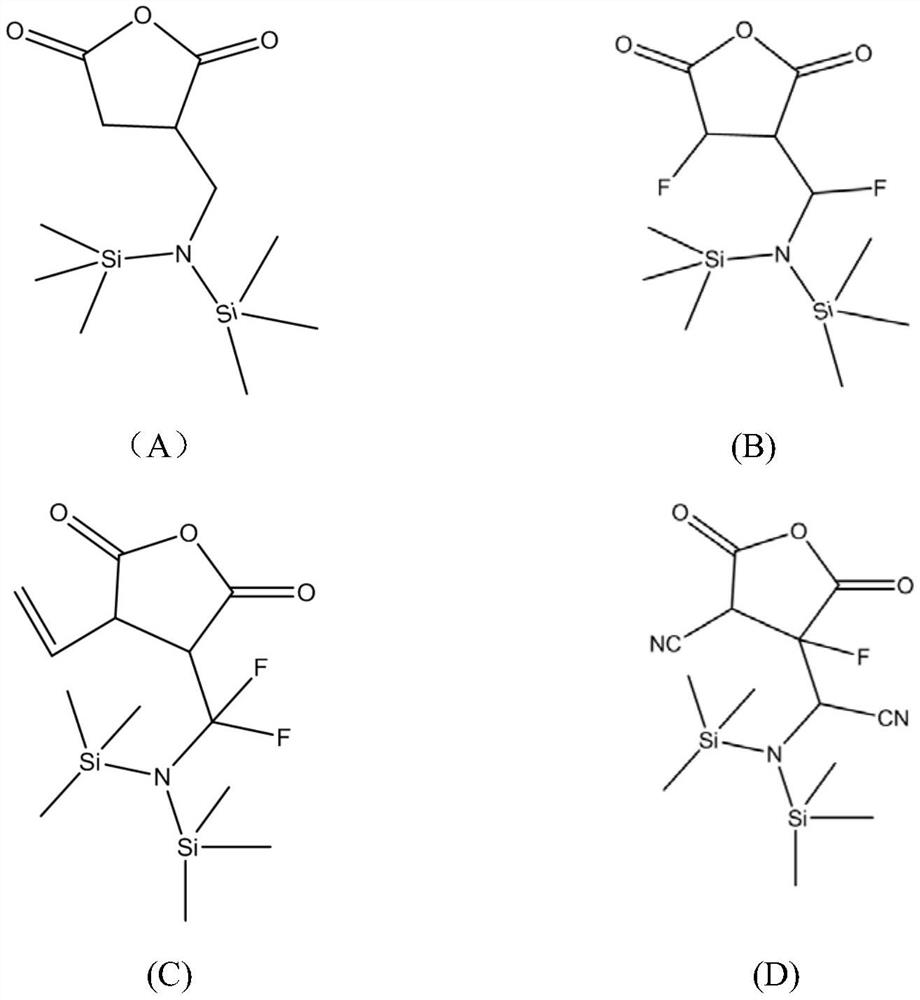A kind of battery electrolyte and lithium ion battery containing the electrolyte
A lithium-ion battery and electrolyte technology, applied in the field of lithium-ion batteries, can solve the problems of reducing the constant current charging ratio and capacity of the battery, consuming hydrofluoric acid, and increasing the internal resistance of the battery, so as to improve high-temperature cycle performance and high-temperature cycle Improved performance and improved gas problems
- Summary
- Abstract
- Description
- Claims
- Application Information
AI Technical Summary
Problems solved by technology
Method used
Image
Examples
Embodiment 1
[0028] In a glove box filled with argon, based on the total mass of the battery electrolyte, the mass fraction of 12.0% LiPF was weighed 6 Dissolved in an organic solvent with a mass fraction of 87%, wherein the organic solvent is a mixed solvent of ethylene carbonate: diethyl carbonate: ethyl methyl carbonate=3:2:5 (w / w / w), and then The film-forming additive ethylene carbonate with a mass fraction of 0.5% and the additive A with a mass fraction of 0.5% were added thereto, and the electrolyte solution 1 was obtained after stirring evenly.
Embodiment 2
[0030] In a glove box filled with argon, based on the total mass of the battery electrolyte, the mass fraction of 12.0% LiPF was weighed 6 Dissolved in an organic solvent with a mass fraction of 87%, wherein the organic solvent is a mixed solvent of ethylene carbonate: diethyl carbonate: ethyl methyl carbonate=3:2:5 (w / w / w), and then The film-forming additive ethylene carbonate with a mass fraction of 0.5% and the additive B with a mass fraction of 0.5% were added thereto, and the electrolyte solution 2 was obtained after stirring evenly.
Embodiment 3
[0032] In a glove box filled with argon, based on the total mass of the battery electrolyte, the mass fraction of 12.0% LiPF was weighed 6 Dissolved in an organic solvent with a mass fraction of 87%, wherein the organic solvent is a mixed solvent of ethylene carbonate: diethyl carbonate: ethyl methyl carbonate=3:2:5 (w / w / w), and then Add film-forming additive ethylene carbonate with a mass fraction of 0.5% and additive C with a mass fraction of 0.5% to it, and stir to obtain electrolyte 3.
PUM
 Login to View More
Login to View More Abstract
Description
Claims
Application Information
 Login to View More
Login to View More - R&D
- Intellectual Property
- Life Sciences
- Materials
- Tech Scout
- Unparalleled Data Quality
- Higher Quality Content
- 60% Fewer Hallucinations
Browse by: Latest US Patents, China's latest patents, Technical Efficacy Thesaurus, Application Domain, Technology Topic, Popular Technical Reports.
© 2025 PatSnap. All rights reserved.Legal|Privacy policy|Modern Slavery Act Transparency Statement|Sitemap|About US| Contact US: help@patsnap.com



